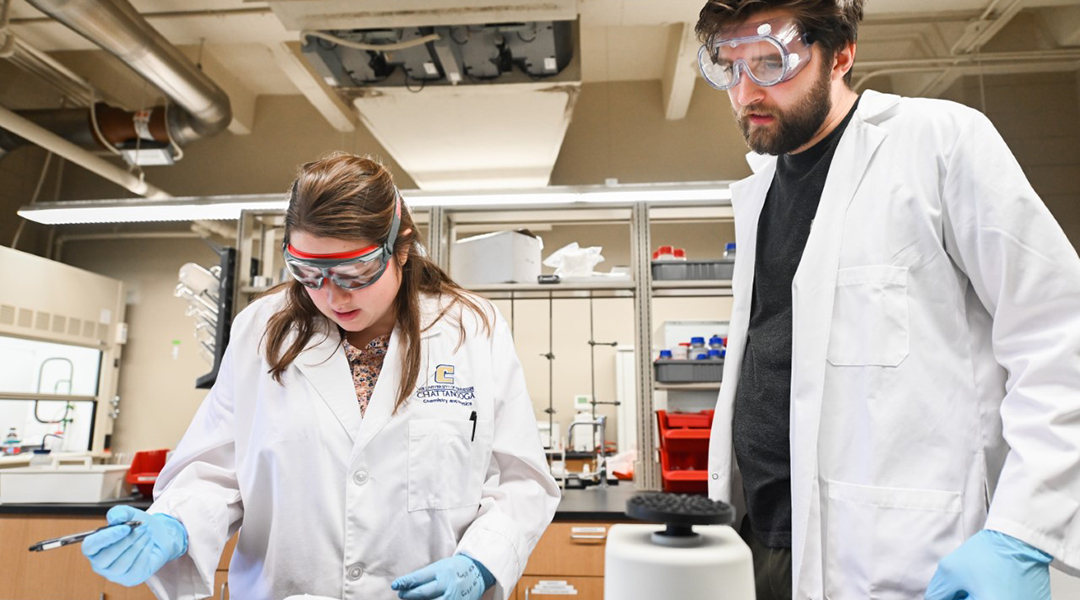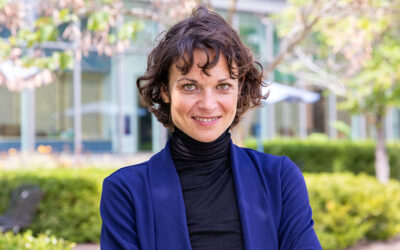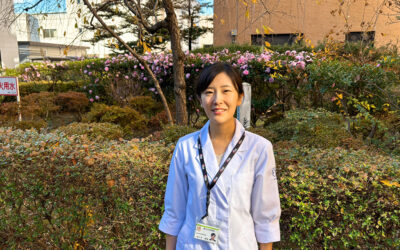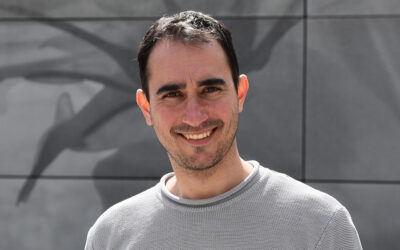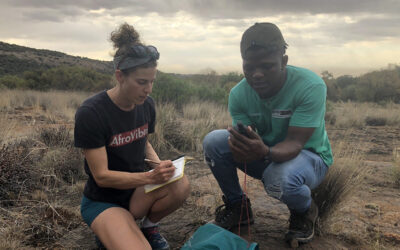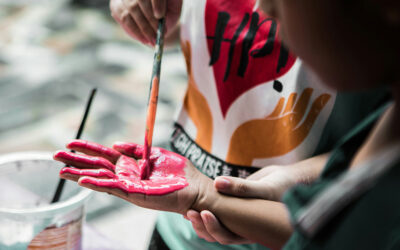At the University of Chattanooga, Tennessee, Meredith Barbee investigates polymer and physical organic chemistry with a particular focus on the makeup and manipulation of materials used in everyday life, such as rubbers.
Barbee applies a very unusual approach to her research: where university research is generally conducted by Ph.D. students and post-doctoral researchers, Barbee’s lab employs only undergraduate students. She believes that early independence in scientific research can positively shape and influence the career of students, whether they continue on in the sciences or choose a different path after their undergraduate studies.
We sat down with Barbee to learn all about her research and her unique approach to teaching.
Where did you grow up and when where you first exposed to the sciences?
I am from Stanfield, North Carolina, a small town 45 minutes east of Charlotte and six hours from Chattanooga, where I am now. In high school, I had many great science teachers and several of them helped me with a science fair project, which really sparked my interest.
My chemistry teacher was Sharon Mace, and my environmental science teacher was Steve Teeter. They were both very supportive of my early scientific exploration. Mr. Teeter would take us to the Green Bank observatory in West Virginia and we would do our own radio astronomy experiments there. I loved all sciences, but especially chemistry.
When did you decide to become a chemist?
Towards the end of high school, I decided I wanted to major in chemistry. I really like how chemistry is connected to many other subjects and some chemists even call it the “central science”. I started off planning to be a high school chemistry teacher, but after working in a lab, I was hooked on doing research and moved on to graduate school for chemistry after spending a gap year in industry after college.
Were there any formative events or anecdotal stories from your (under)graduate studies you could share?
I went to Meredith College in Raleigh, North Carolina. It is a women’s liberal arts college with many women faculty, so very early on I was supported by those professors and felt a sense of belonging because they wanted you to succeed. The idea was that you can become anything you want to be.
Did you have any mentors who supported you along the way?
At Meredith College, Claire Siburt and Walda Powell were professors who mentored me and helped me make decisions about my career plans. My Ph.D. advisor, Stephen Craig, helped me develop a lot of my philosophy about who I want to be as a scientist, and my postdoc advisor, Abigail Knight, supported me along the way as well. At UTC there is another faculty member, Gretchen Potts, who has helped me transition from postdoc to faculty over the past year and a half.
I also completed two different Research Experience for Undergraduates (REU) programs through the National Science Foundation. One summer, I worked at Appalachian State University with Professor Alexander Schwab, and this was my first real research experience. The following summer I worked at Duke for the second REU. I would end up working in the lab where I later conducted my Ph.D.
Can you tell us about your research? What excites you about your work?
In my department at UTC, we combine chemistry with physics and we do not have any graduate students. We have around 16 faculty members with active research programs and all research is conducted by undergraduates. I see my students as scientists who are just in the undergraduate portion of their career — and I want them to also see themselves that way. They are all very motivated students who are highly engaged in our work.
The research I am working on involves how to tune material behavior on a macroscopic scale using chemistry. Students do not always see materials like polymers and rubbers as being made up of bonds, molecules, and compounds, but they are, and we can use chemistry to influence those properties.
How does your laboratory investigate the control of material properties on a molecular level?
We design different monomers and crosslinkers for making different polymers [a class of natural or synthetic substances composed of very large molecules, which are multiples of simpler chemical units, or monomers].
We look at how those polymers behave on the scale of individual chains dissolved in solution and the scale of making bulk materials and networks. My students conduct synthesis to make the monomers we are interested in exploring, but they also make and test materials.
Which materials does your laboratory investigate and where are these materials applied?
We are working with a wide range of materials. One of my students is focusing on hydrogels with bio-medical applications, and another student is working with polyurethane foams. We are looking for interesting problems to solve and which materials could benefit from our strategies.
Can you share some future research plans?
We just started working with a grant from the Center of Excellence and Applied Computation Science and Engineering at the University of Tennessee at Chattanooga. My research collaborator for this grant is Eleni Panagiotou, now at Arizona State University.
We are investigating how polymer chains are connected in networks and how their topology influences the behavior of hydrogels. There are both experimental and computational components to this project. I am excited to learn more about using computational research to support experimental design.
Your research is conducted by undergraduate students. How did you get into this type of lab and what is your approach to this model of learning?
As a graduate student and a postdoc, I had many undergraduates working with me throughout that time because that experience meant so much to me when I was an undergraduate. I found out early on with my first student in my Ph.D. that I was having the most fun when he was working in the lab too and I could team up with him and share results. It makes sense to think about what brings you joy and what you’re good at.
Over the years of helping students start their own projects, I developed an interest in connecting research and teaching through research as a part of my future career. Conducting undergraduate research is an excellent way for students to learn chemistry and one of the main ways they become interested in the subject and decide to become scientists.
My approach is to let the students lead the work as much as possible. I try to provide a safe and supportive environment. I start off by introducing them the project and teaching the lab skills they need, and over time as they learn and develop more independence, they start developing their own hypotheses and pushing their work forwards. My goal is for my students to experience the entire process of doing science, from designing experiments to thinking critically about the results.
The students are very motivated and creative, and they have not experienced years of struggle trying to make experiments work. Everything is new and exciting and that creates contagious enthusiasm.
Does this early exposure to hands-on laboratory research affect the career trajectory of the students?
It can go either way. Sometimes they realize they like the research more than expected and go on to pursue a career in chemistry and others find that this is not want they want to do, which is also valuable.
Giving them a realistic picture of what doing research is really like is important. From there, as their mentor, my goal is to support their goal. The research skills they gained through scientific thinking can then translate to many different areas.
What is your advice for people who want to improve their scientific teaching?
Stay focused on the students, they are the center of it all, and you want them to have a good experience. Provide the necessary support and let them know you care about them and their learning. In teaching your content, try different things.
We are always innovating as scientists, I also keep striving to improve in teaching. It also helps me to not focus too much on perfection. You can learn from each situation and figure out how to improve.
What is …
Your favorite free time activity?
I love hiking and camping in Tennessee and North Carolina, and we have many hiking trails and waterfalls in the area surrounding Chattanooga. I also enjoy visiting my family.
Your favorite food?
I always have chocolate in my office, but any kind of chocolate is my favorite.
A song you have on constant replay?
I have been listening to the two newest Taylor Swift albums a lot, but no particular song.
A book everyone should read?
My favorite book is Jane Austen’s Pride and Prejudice.
A discovery (any research field or time) you wish you would have made?
I worked with some brilliant people during my studies and I have thought it would be great to write any of their publications. Also, there was a lot of creative early work in the field I did my Ph.D., polymeric mechanochemistry, and it would have been cool to be involved in that.
A person (famous or not) you would like meet for a drink?
I would like to have a drink with Carolyn Bertozzi, who just won the Nobel Prize in Chemistry. It would be great to learn more of the backstory of how she developed her ideas around ring strain for bioothogonal chemistry. She is also an excellent advocate for diversity in science.
Who would play you in a biopic?
I do not follow pop culture very much, but Jennifer Lawrence seems like a nice person to play me.
Feature image credit: Angela Foster and the University of Tennessee at Chattanooga

